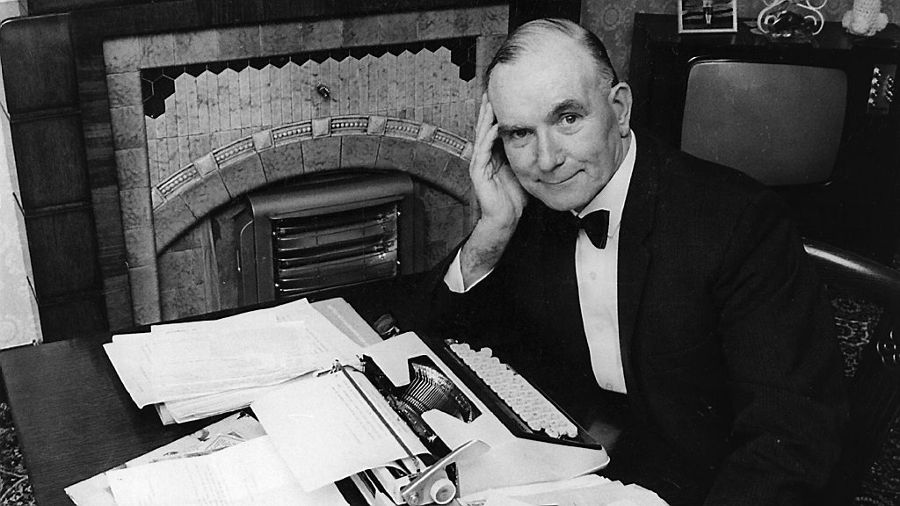AROUND 1,000 people submitted ideas to the government about ways to cut public spending, it was reported this week. A thousand people. I make that approximately 0.03% of the adult population. So much window-dressing, so few people to admire it.
The scheme was launched by Public Enterprise minister Brendan Howlin last June, when he invited people – anyone – to suggest “creative and constructive” ideas to eliminate wasteful spending.
“The challenge facing our country is so great that no reasonable PR exercise” – sorry, I mean proposal – “no reasonable proposal can be ignored,” said Howlin at the time. And roughly one in every three thousand of us complied. Statistically, this means Minister Howlin’s office has a slightly better chance of being hit by a satellite than of hearing ideas from the electorate.
A selection of the submissions to Howlin’s department was revealed last week under a Freedom of Information request, and reported in the Irish Times. I wish I could tell you I had seen the whole list, but the information must be top secret, seeing as how John and Mary’s opinions on welfare scroungers and public service fatcats are so sensitive to the national recovery and all.
And anyway, while you’re waiting for some Godot in the Department of Public Expenditure to return your phone calls – or even send so much as an automated email response acknowledging receipt of your query – despair overtakes you. It’s hard to explain, it just happens. Must be something to do with the zeitgeist.
Other things happen, too, while you’re waiting to hear back from the department. Mountain ranges weather away to dust; new stars are born and die; we pay off the national debt. (No, that last is just whimsy.)
From the selection published, it appears people have ideas about welfare, which is typical of the divide-and-rule nature of campaigns such as this. Ideas about welfare tend to involve making sure that no one on welfare can afford satellite television, or cigarettes, or alcohol. And if that doesn’t make them miserable enough, let’s make them do community work as well – maybe they could pick up rich people’s litter? And is there any way we can stop them from spawning?
I’m sure everyone has a few “creative and constructive” ideas about saving the state money, even if we didn’t go to the trouble of submitting them to Brendan Howlin’s office, held back as we were by the sheer, unendurable futility of the exercise.
There are the obvious ideas, to do with forcing reckless European speculators to stomach their own losses, thank you very much; and not giving pensions to politicians until they reach the age of – oh, I don’t know, let’s pick a number out of a hat and say 65; and putting a stop to ‘unvouched’ expenses; and maybe making do with even half the usual number of political consultants…
There are the less obvious ideas, such as establishing a fresh air utility company and then privatising it. (The IMF would be all for that.) Or couldn’t we just sell Kerry to the Americans? No offence, Kerry. I’m as fond of you as the next person but these are desperate times and you still owe us big for John O’Donoghue. You know how much the Americans would love you, and we’ll buy you back as soon as we can afford you again – once we’ve got rid of the Healy-Raes, say.
And then there are the ideas about welfare. For instance, what about giving people on the dole responsibility for running the country? It would work like this: as soon as you become unemployable, you get appointed to political office. Oh, I forgot, we do that already. It’s called the Seanad.
However, as we know, these crowd-sourcing schemes are about as useful as a lighthouse in a bog. And since the Cabinet now has about as much influence over this country’s economic fortunes as you or I, let’s call it a lighthouse in a German bog.
Remember the ‘Ideas Campaign’, launched a few years ago? There were 5,000 submissions to that, many of which have to be commended for at least bestowing on us the priceless gift of laughter. Then there was Martin McAleese’s ‘Your Country, Your Call’ campaign, now better known as ‘(Whatever Happened To) Your Country, Your Call’.
These schemes are presented as a way of making us feel powerful, even though we’re not. What they’re actually doing is making us feel responsible, even though we’re not.
“Plucky little citizens,” says the government, “we have a long and proud history of overcoming adversity and so on and so forth. Now stick out your chin, and grin, and say…” And we all – or one in 3,000 of us at least – join in in the chorus: “Morgen, morgen, Ich liebe dich, morgen”.
Published in the Irish Mail on Sunday, 22 January 2012

